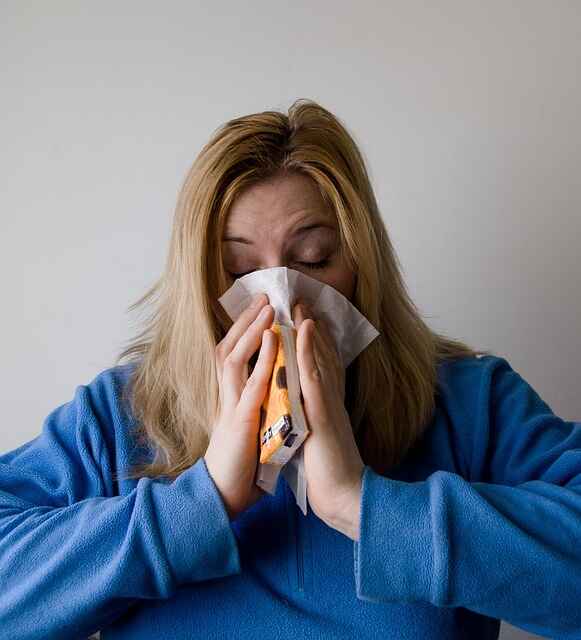What is Pneumonia?
Pneumonia is an infection that inflames the air sacs in one or both lungs. The air sacs can fill with fluid or pus or purulent material, causing cough with mucus or pus, fever, chills, and difficulty breathing. A variety of organisms can cause pneumonia, including bacteria, viruses, and fungi.
Facts:
- The severity can range from mild to life-threatening. It is most serious in infants and young children, people over 65, and people with health problems or weakened immune systems.
- Newborns and infants may show no signs of infection. Or they may vomit, have a fever and cough, look restless or tired and have no energy, or have trouble breathing and eating.
Also Read: Understanding Diabetes: What is Diabetes? Types, Causes, Symptoms, Management
Symptoms of Pneumonia:
Signs and symptoms of pneumonia may include:
- Chest pain when breathing or coughing
- Confusion or changes in mental awareness (in adults age 65 and older)
- A cough that may produce mucus
- Fatigue, fever, sweating, and chills
- Nausea, vomiting, or diarrhea
Treatment:
See your doctor if you have trouble breathing, chest pain, a persistent fever of 102 F or 39 C or higher, or a persistent cough, especially if you cough up the pus. People who are on breathing machines or ventilators, often used in intensive care units, are at higher risk of this type of pneumonia. In case of high risk, hospitalization may be prescribed to the patients.
People receiving chemotherapy or taking drugs that suppress the immune system are at risk. In some older adults and people with heart failure or chronic lung problems, this lung disorder can quickly become a life-threatening condition. (Source)
Causes:
Many bacteria can cause pneumonia. The most common are bacteria and viruses in the air we breathe. Your body usually prevents these bacteria from infecting your lungs. However, sometimes these bacteria can overwhelm your immune system, even if you are generally in good health.
Pneumonia is classified by the types of germs that cause it and where you got the infection from.
Community-acquired pneumonia: Community-acquired pneumonia is the most common type of pneumonia. Occurs outside of hospitals or other medical facilities. It can be caused by:
- Bacteria. This type can occur alone or after a cold or flu. It can affect one part (lobe) of the lungs, a condition called lobar pneumonia.
- Bacteria-like organisms: Mycoplasma pneumoniae can also be the cause. It usually causes milder symptoms than other types. It is not too severe.
- Mushrooms. This type is most common in people with chronic health problems or weakened immune systems, and in people who have inhaled large doses of the organisms. The fungi that cause this can be found in soil or bird droppings and vary by geographic location.
- Nosocomial pneumonia: Some people get pneumonia while in the hospital for another illness. Hospital-acquired pneumonia can be serious because the bacteria that cause it can be more resistant to antibiotics and because people who get it are already sick.
- Viruses: including COVID-19. Some viruses that cause colds and flu can cause pneumonia.
Risk factors:
Pneumonia can affect anyone. But the two age groups at the highest risk are:
- Children under 2 years
- People aged 65 or older
- Hospitalized individuals.
- Chronic disease patients. You are more likely to get pneumonia if you have asthma, chronic obstructive pulmonary disease (COPD), or heart disease.
- Regular smokers.
- People with weakened or suppressed immune systems. People who have HIV/AIDS, who have had an organ transplant, or who are receiving chemotherapy or long-term steroids are at risk.
Preventions:
- Get vaccinated. Vaccines are available to prevent some types of pneumonia and the flu. Talk to your doctor about getting these shots.
- Make sure children are vaccinated. Doctors recommend a different pneumonia vaccine for children younger than 2 years of age and for children 2 to 5 years of age who are at particular risk of pneumococcal disease.
Children who attend a group childcare center should also receive the vaccine. Doctors also recommend a flu shot for children over 6 months of age.
- Maintain good hygiene. To protect yourself from respiratory infections that sometimes lead to pneumonia, wash your hands regularly or use an alcohol-based hand sanitizer.
(Follow Covid 19 Protocols).
- Don’t smoke. Smoking damages your lungs’ natural defenses against respiratory infections. Save your lungs for the future.
- Keep your immune system strong. Get enough sleep, exercise regularly, and eat a healthy balanced diet.
- Go for health check-ups regularly to avoid future risks.
Also Read: All About Heart Attack: Causes, Symptoms, Diagnosis & Treatment





